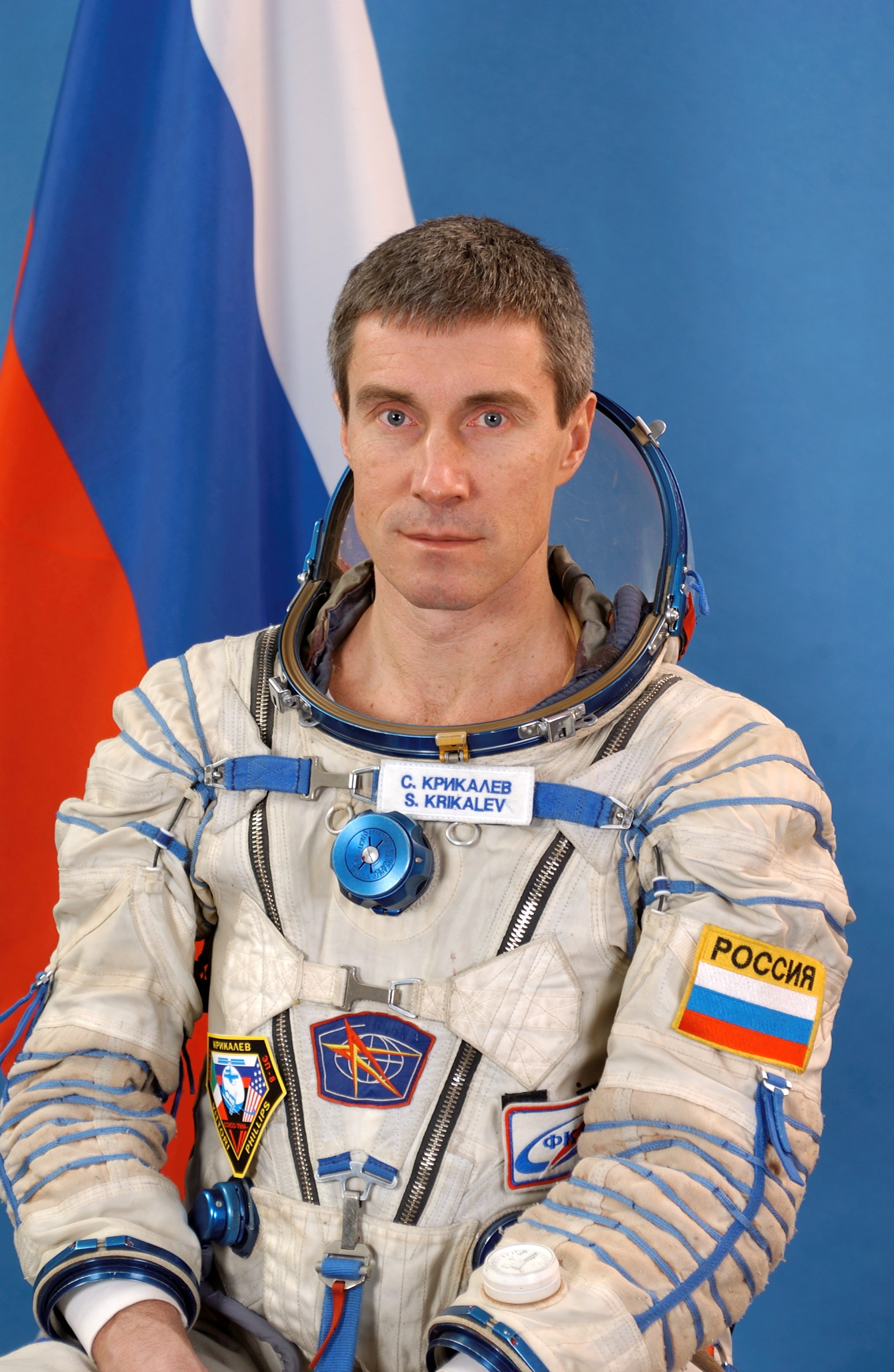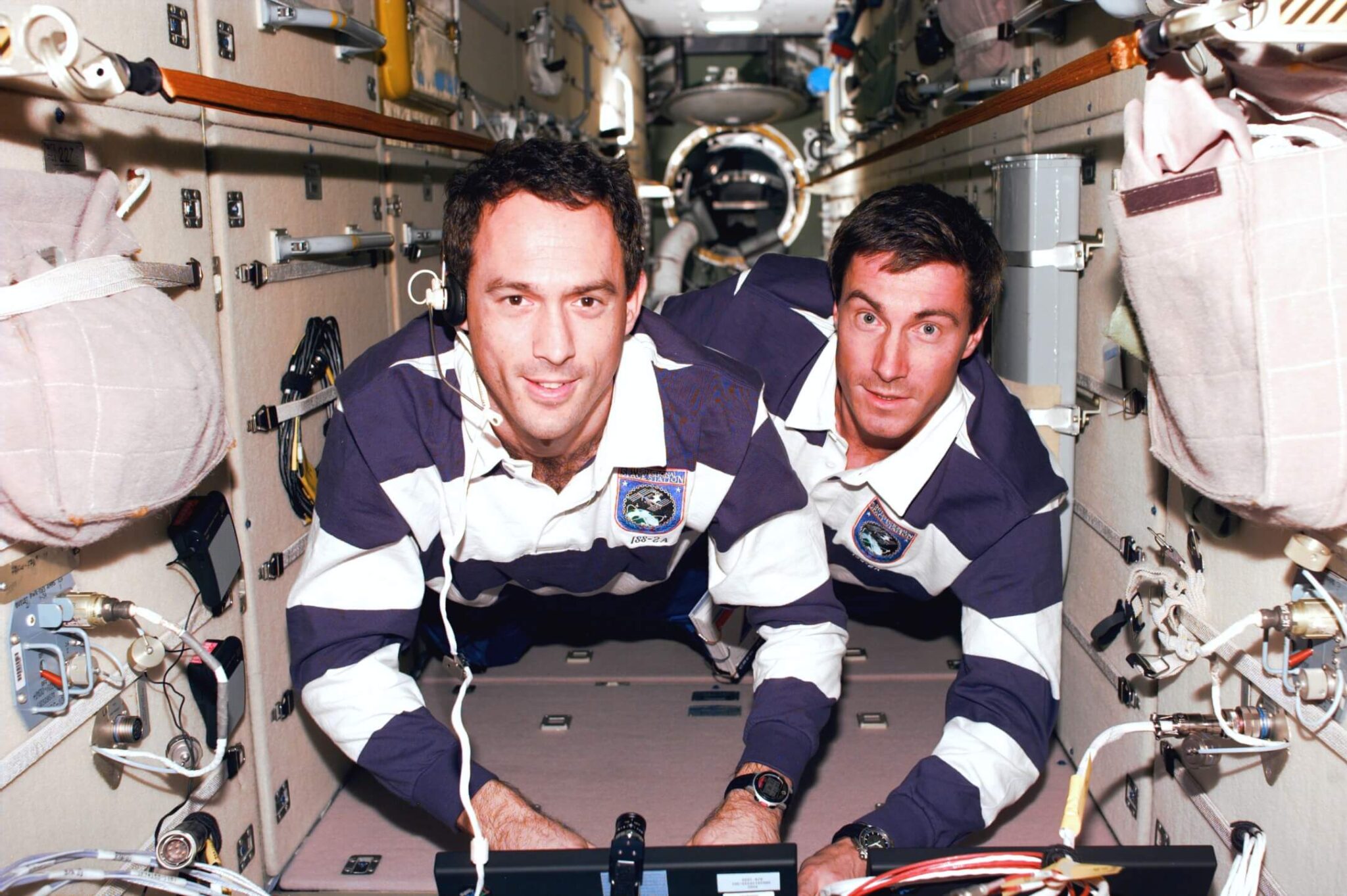In 1991, cosmonaut Sergey Krikalev made one of the most difficult decisions of his life: to stay on the Soviet space station indefinitely. He did this even though he knew that the country that sent him into space had disintegrated, that its space program had collapsed and disintegrated and that in the worst case scenario - he would never be able to return home. He will end his life, literally, buried in space. The end was good, but thanks to Krikalev's resourcefulness and a lot of luck

In 1991, cosmonaut Sergey Krikalev made one of the most difficult decisions of his life: to stay on the Soviet space station indefinitely. He did this even though he knew that the country that sent him into space had disintegrated, that its space program had collapsed and disintegrated and that in the worst case scenario - he would never be able to return home. He will end his life, literally, buried in space.
And yet, he decided to stay.
This is his story.
The pilot who became a cosmonaut
Already when Krikalev was born, his parents knew he was destined for greatness. Like any parent. But in Krykalev's case, he also fulfilled his potential. He earned a bachelor's degree in mechanical engineering at the equivalent of the Technion in Leningrad, and went directly to the Russian space industry. He tested equipment designed for space flights, and along the way became an impressive test pilot and teammate in the Soviet Union's national aerobatic team[1]. Five years after entering the field of space, he had already completed his training as a cosmonaut and was preparing to leave Earth.
It is important to me to provide the exact dates in the story, for reasons that will be revealed soon. In 1991, on May 19, Krikalev took off to the Russian Mir space station, alongside another cosmonaut and a British astronaut. Just before qualifying for the rocket, the two cosmonauts followed the procedure outlined by Yuri Gagarin for good luck: they got out of the minibus, walked decisively to the rear wheel and poured their water on it. A routine procedure for every cosmonaut in those days, which was supposed to ensure a smooth flight - and no less important, a safe return to the green hills of the country.
It didn't really work for them.
The trouble started already with the approach to the Mir space station, when the automatic guidance system that Beka Haim died for an unknown reason. Krikalev had to take control of the space vehicle and steer it manually to connect with the space station. By no means, in an event that was now covered in all the newspapers and television shows, he managed to thread the needle and bring the team safely to the destination.
Only when the connection was successfully made and the doors opened wide did the astronauts discover that the destination was, in a word, stinky.
The space station - not what you thought
It is customary to think of space stations as the pinnacle and splendor of technology: large structures moving at a speed of almost thirty-thousand kilometers per hour, with hundreds of advanced devices that preserve the lives of the fragile passengers. The International Space Station, first launched in 1998, really is. According to reports from the people there, "the air in the space station actually smelled great."[2] This is not surprising. Its air purification system on the International Space Station has been upgraded over the years, and today it is capable of handling any 'giant puke', according to the new Israeli Iron Sheep property on YouTube[3].
This was not the case on the Mir space station.
Take several medium-sized trailers and connect them together. Throw in some passengers - almost all men - and make them work hard for almost all their waking hours, plus four hours of exercise. Now add to the equation food that does not add health to the soul or the intestines, and the vodka bottles that miraculously found their way into outer space. Last but not least, cut off the structure from the outside world, so that all the smells (and tastes) in the air remain safely inside it, alongside all the microorganisms that the astronauts bring with them from Earth, and that have found a warm home in every nook and cranny of the space station. Lucky there is vodka that can kill them.
Put all these together and you get the typical smell of Mir and student dormitories: the stench of a cheap alcoholic drink mixed with sweat.
But for Krikalev, it was the smell of home. His friends say that he felt like he was coming home every time he entered the space station. He loved the weightlessness and the feeling of being weightless by his side. During long months in space, he learned to fly like a bird from one side of the station to the other - an extraordinary achievement among cosmonauts, who often prefer to immerse themselves in books as a way to pass the time[4]. According to him, he spent most of his free time watching the Earth and trying to identify a road route and countries on the surface.
This activity became even more important to him, when the country he came from fell apart during the mission.
The death of the Soviet Union
When Krikalev left the Earth, the Soviet Union - his homeland - was on the verge of collapse. The empire that united together many countries under its wings lost a large part of its power, and what is more important - the trust of the countries subject to it that it can continue to impose its will on them. During Krikalev's stay in space, the situation reached an explosion point, and the protectorates of the Soviet Union abandoned it one by one.
One of the most important countries in the Soviet Union was Kazakhstan. Both because of the valuable resources in its territory, and because the Soviet Union established an advanced infrastructure there to launch missiles into space. The country expressed a desire to leave the Union and demanded a huge price for the use of the launch infrastructure. Krikalev found that the Soviet Union simply could not - or did not want - to send him home at face value.
The public did not remain silent in the face of the development. The Russian newspaper Komsomolskaya Pravda published a sharply critical article on the subject, in which it was written that -
"The human race sent its son to the stars... but immediately after he left the earth, interest in his tasks was lost for prosaic reasons... and the human race began to forget about its cosmonaut. He didn't even return it at the specified time..."[5]
Moscow tried to please the Kazakhs and win a discount, promising that the next cosmonaut sent to Mir would be of Kazakh origin. Except that cosmonauts need intensive training before they are sent on long missions in space, and Krikalev was informed that his replacement would not arrive at the promised time, but... later. when exactly? No one could promise with complete faith, and the situation was clear even to Krikalev himself.
"The strongest argument was economic, because it allowed them to save resources here," Krikalev said in 1991, while in orbit around the Earth. "They say it's hard for me - not really good for my health. But now the country is in such difficulties, that the possibility of saving money must be a top priority."[6]
Krikalev's choice
Let's clarify for a moment that Krykalev was not in real danger of being left behind in space. He and his friend on the space station could escape in the space lifeboat that was always ready for the cosmonauts. He might have faced a military trial, but at the time, no one would have blamed him for his choice.
Krikalev chose to stay. He understood very well that if the station remained empty of human operators, it could get out of control, as it had already happened before, and crash on Earth. He refused to let the Soviet-Russian space program die, and agreed to risk his life for it.

It is not an exaggeration to say that Krykalev put his life on the line to stay. The systems in Mir were designed to survive only five years, and already in the nineties they began to collapse rapidly. A few years into Krykalev's time in space, one of the oxygen production systems malfunctioned and burst into flames, releasing a large amount of toxic smoke that filled the station. The team had to put on oxygen masks inside the station itself... and discovered that some of the masks did not function on their own, as well as some of the fire extinguishers. It was certainly not a safe environment.
In general, astronauts - and especially the Mir cosmonauts - were exposed to cosmic radiation and microgravity and their harmful effects. The longer they spent in space, the more they were at risk of developing cancer, cataracts, muscle and bone degeneration, and other medical problems. And of course, there was always the mental difficulty and the separation from the lovers of Krikalev's heart: his wife and their under-age daughter.
Krikalev was well aware of the dangers. In a press interview after his return, he shared his concerns with the public.
"Do I have enough strength?" He told how he asked himself. “Will I be able to readjust to this longer stay to complete the program. Naturally, at a certain point I had my doubts."
Nevertheless, he chose to stay.
The end - and the beginning
Krikalev remained in space more than one hundred and fifty days beyond the planned, but in the end Russia managed to return its 'son sent into space'. He was the only person ever to leave Earth under one citizenship - Soviet - and changed it to Russian during the landing.
Fittingly for this strange situation, Krykalev landed in Kazakhstan - a country that had become an independent republic during his time in outer space. His muscles and bones atrophied during that time, and he needed assistance and a wheelchair to leave the module in which he returned to earth. It took many months before he fully recovered from the shocking experience.
Then he returned to space.
For the cosmonaut landing outside the atmosphere, the experience was just the beginning of a years-long love affair with space. He continued to 'return home', as he put it, time and time again over the next fifteen years. He took part in six missions in total, and accumulated a total of 803 days in space - a record broken only in 2015 by cosmonaut Gennady Padalka[7] [8]. But Padalka had never been left in space for any length of time, or feared he would not be able to return without leaving the space station behind. This honor is reserved only for Krykalev - at least until this moment.
Few people know Krykalev today. He tries not to make waves, and even on the days when he was abandoned in outer space he didn't make a murmur. But his story is a milestone in the journey to conquer space, and even if Krikalev himself does not emphasize his adventures outside the earth, every space enthusiast should get to know them. After all, we are walking safely on the path that will rescue humanity from our small planet - and we should know how we started the road, and what are the bumps along it.
Good luck - in space!
[1] https://www.discovermagazine.com/the-sciences/the-last-soviet-citizen
[2] https://www.youtube.com/watch?v=E36ocu0s0-A
[3] https://www.youtube.com/watch?v=Y1A34ypOgeQ
[4] https://www.discovermagazine.com/the-sciences/the-last-soviet-citizen
[5] https://www.historynet.com/cosmonaut-sergei-krikalev-the-last-soviet-citizen.htm
[6] https://www.historynet.com/cosmonaut-sergei-krikalev-the-last-soviet-citizen.htm
[7] https://www.britannica.com/biography/Sergey-Konstantinovich-Krikalyov
[8] https://www.space.com/11337-human-spaceflight-records-50th-anniversary.html
More of the topic in Hayadan:
